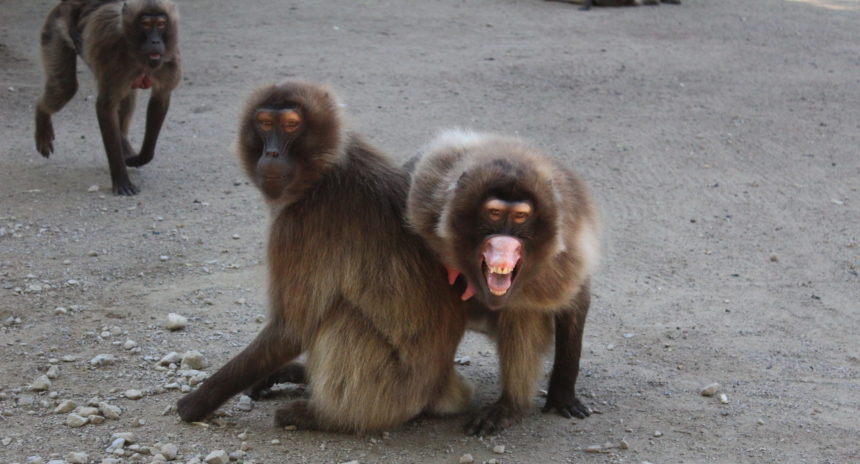Human behavior and the similarities with nonhuman primates

Virginia Pallante started her study in biology driven by the interest in how social cohesion is maintained in gregarious animals, trying to understand if similar strategies are shared across different species and how different societies shape the expression of such strategies. She further investigated these issues by focusing on nonhuman primates’ conflict management, a topic that includes the core questions on how groups are maintained when cohesion is threatened by conflicts and therefore on how peace, as a process, is actively preserved by group members. During her PhD she explored how emotional variation, self-control and active intervention during and after an aggressive event all developed to keep peace in the group, by conducting ethological observations on two colonies of monkeys characterized by high levels of tolerance: the geladas (Theropithecus gelada) and the Tonkean macaques (Macaca tonkeana).
Humans rarely included in ethological research
Although the expression of components implies a common ground that can be potentially shared across species, humans have rarely been included in ethological research (study of animal behavior). Due to the lack of integration of theories and methodologies between ethology and social sciences, the study of humans has been indeed set apart from that of other animal species, leaving questions and explanations on human behavior and its evolution still open.
Phylogenetic continuity and the processes explaining human behavior
Pallante is approaching the study of human behavior from an ethological perspective by analyzing bystander intervention during and after violent episodes in public spaces. With the help of Closed Circuits Television (CCTV) she conducts field naturalistic observations on humans to catch the specificity of human behavior as well as the similarities that are shared with other nonhuman primates’ species, thus to investigate the phylogenetic continuity (the idea that humans share certain characteristics and behaviors with animals as a result of their evolutionary history) and the processes explaining human behavior in an evolutionary context.
Research on conflict resolution strategies
Since 2021, Pallante is holding a Marie Curie Individual Fellowship, supporting her interdisciplinary project that combines perspectives from social sciences and ethology for the study of bystander role in conflicts, with the aim to explore how conflict management strategies developed within different social structures and complexity (such as the possibility to interact with strangers, a unique feature of human societies) by simultaneously considering the necessity to maintain group cohesion, a common feature of social animals. Research on conflict resolution strategies will explain the ability of our species to regulate every day group living promoting a sense of shared morality.
More NSCR research into conflict and human bahavior.
Share this article
Actuele berichten

